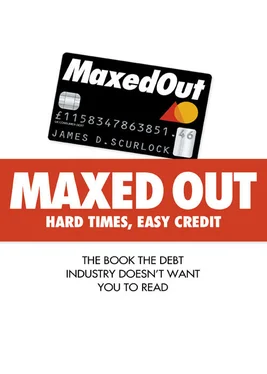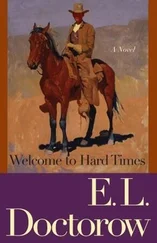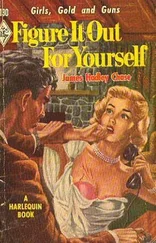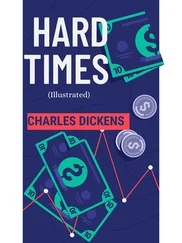The good news is that there is nothing inevitable about the American experience. For one, the British press seems to be much more concerned about the issue and much less concerned by sideshows like whether or not Elton John should be allowed to marry his boyfriend or whether or not the plug should be pulled on a woman who has been brain-dead for decades. Secondly, the British government seems to be taking steps to address the worst cases of abuse by the financial industry—reminding those companies and its citizens that they are not, after all, above the law. The Financial Services Authority, for example, recently ruled against banks and financial services companies which have been charging illegal fees in flagrant violation of UK laws. In the United States, such fees were made entirely legal by the Supreme Court less than a decade ago. Still, the fact that financial corporations in the UK are acting so American is more than a little telling.
Is the financial industry shaking in its boots? Probably not. I recall a conversation with a provisional minister in Canada, who observed that, unlike the United States, his country had usury laws (interest rates above 60 percent are prohibited). Still, those laws went unenforced. Why? He seemed to think that the police were too busy with “real” crime to go after a bunch of respectable bankers. But there is another reason. Most of us in America, Canada and the UK cannot live without easy credit; the threat of our plastic being taken away is terrifying not only to politicians who expect the economy to grow year after year, but to us, who have become conditioned to believing that easy credit will always be there. I suspect that the FSA will find itself playing a game of chicken with the credit card companies, who will threaten to remove the punchbowl and bring the party to an abrupt halt if they are not allowed to charge the kinds of fees and interest rates they’ve become accustomed to. The financial industry recently played this game with the Japanese government, claiming that a cap on fees and stratospheric interest rates would bring the country’s economic recovery to a halt. To their great surprise, the Japanese government didn’t buy it.
Lord Acton once predicted a climactic showdown between the people and the banks. He may finally be proven right, that is if people cannot stop borrowing and the banks cannot stop enticing them to ruin. As Charles Dickens remarked of the time leading up to the French Revolution, “it was the best of times, it was the worst of times.” At the moment, it is the best of times for the owners of capital. But for the rest of us, it is a very different story.
“I think everyone knows that something just isn’t right.”
- Dave Ramsey
The Country Music Hall of Fame sits on the edge of downtown Nashville, across Broadway Street from a row of run-down buildings, one of which houses a FedEx Kinko’s store. Downtown is, like most midsize American cities, oddly quiet. The busiest spot is a Starbucks tucked into the mezzanine of a mid-rise office building occupied by a bank. At night, retired couples and newlyweds wander past the Hall of Fame and the FedEx Kinko’s on their way to a little strip of bars and restaurants, like the Hard Rock Cafe and Sbarro, the pizza place popular with tourists. The only clue that this is Nashville, and not Louisville or Minneapolis, is a young man in a wifebeater and a cowboy hat strumming a guitar on top of a box. He tells the few good folks who pause to listen that he’s looking for a record deal, and they seem to appreciate the lonely note of authenticity he’s lending their vacation, but it’s hard to figure how he’s going to end up across the street someday, in that museum. The fans he’ll need are being bused from their hotels over to the Grand Ole Opry, a huge entertainment complex near the airport. And the music producers are scattered around the suburbs, working out of small offices and home studios. He’d have better luck perching outside a strip mall Starbucks, waiting for one of them to emerge with a Frappuccino.
But if this cowboy decided to make that short trip, setting out past Vanderbilt University and into the suburbs, he’d discover just how much the world has changed. He’d pass countless pawnshops, check-cashing outlets, bank branches, title loan stores, and financing companies. He’d see that most billboards were advertising loans of one kind or another—and he’d also see plenty of smaller ads, mostly on the sides of the city’s buses, for credit repair companies and bankruptcy attorneys. He’d soon learn that Tennesseans have become obsessed with debt: how to get it, get rid of it, or, most commonly, how to “surf it,” i.e., how to ride larger and larger waves of debt without wiping out.
Indeed, if the cowboy headed east along the interstate toward Brentwood, the state’s plushest suburb and home to many of his idols, he would see several billboards advertising a middle-age man with a bald head and a silver beard, a man who could easily pass for an aging country music legend, a man promising “Freedom.” This man, the cowboy would discover, has the number-one radio show in Tennessee, and one of the fastest-growing audiences in the country. This man reaches millions of Americans in over 260 cities who listen to him religiously. He travels the country and commands adoring audiences in the thousands. He has his own reality television show in development. And he can’t even sing or play the guitar.
His name is Dave Ramsey. He sells freedom from debt. And he is arguably the most popular recording artist in Tennessee—which, incidentally, has the second highest bankruptcy rate in the nation. 1
I first meet Dave at a two-story brick office building that sits across the street from the state’s most expensive shopping mall. The building is home to Dave’s radio show as well as “Financial Peace University,” Dave’s twelve-step program to get out of debt. Dave is of medium height, stocky build, and bald. He could be Dr. Phil’s nephew. For the uninitiated, his intensity can read scary. Onstage he prowls and contorts every muscle like the evangelist he is. When Dave starts preaching the word, there is no room for argument. He’s been to the mountaintop. And he’s come back to save your soul from the demon that is debt.
Before every show Dave huddles with his staff in a prayer circle. A rock song leads in, then a quick anecdote or bad joke, and then Dave starts taking calls. The callers, as ever, are lost. They are trapped. They cannot help themselves. They do not understand their lives. They do not understand the terms of their credit card agreements and car loans. They are afraid. They are good people, however. They are just confused. Their hearts are willing but their minds are weak. Math scares them. They need a leader, someone to lead them out of the valley of the shadow of debt. Dave is the man.
He listens to them. Then he yells at them. He probes. He scolds. He exposes their hypocrisy and their secrets, which they didn’t really want to keep anyway. He is the stern parent they never knew but wish they had. He tells them to sell the minivan, to live on “rice and beans and beans and rice,” to get out of school and start making money. He tells them to hold garage sales. Lots of them. Then, during the commercial breaks, he urges his listeners to visit a mattress store where they can get “the really good $5,000 mattress sets for only $3,000” and why not stop by the pawnshop that has been a sponsor of his show from the beginning? That’s where rich folks shop, he tells them. The plugs are not so much advertisements as they are testimonials, though it seems more than a little absurd that someone drowning in debt would plunk down three grand for a trophy mattress or spring for a bargain Rolex.
Читать дальше











